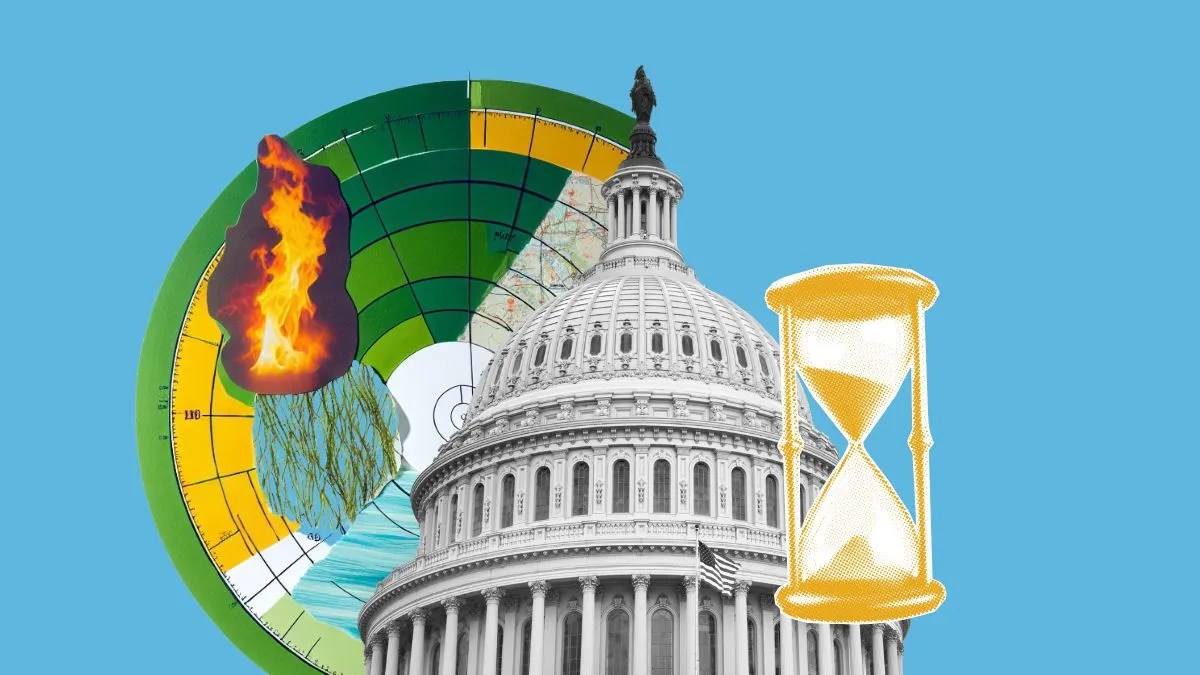Government shutdown looms large for real estate, mortgage

Government shutdowns have repeatedly rippled through the real estate industry over the past three decades, delaying loans, snarling flood insurance and rattling buyer confidence.
A federal shutdown is days away as of Friday — threatening paychecks for hundreds of thousands of workers, freezing key reports like monthly jobs data and placing a layer of uncertainty over real estate transactions.
Lawmakers have until Tuesday to pass a temporary funding bill, but talks are stalled. Republicans are pushing a short-term extension with no add-ons, while Democrats want it to include health care provisions such as extended Obamacare subsidies.
Any plan to avert a shutdown will need bipartisan support to clear the 60-vote threshold in the Senate.
President Donald Trump has also expressed plans for large-scale permanent job losses at federal agencies should a shutdown occur.
Shutdown history
Short, partial shutdowns date back to the 1980s, but the more consequential episodes in recent memory include the 16-day 2013 shutdown and the 35-day 2018-19 lapse.
Both shutdowns illustrated how federal interruptions can stall mortgage closings and regulatory functions critical to property transactions.
“Hopefully it doesn’t happen at all, and the government, who we pay extremely well, gets its act together and actually works together to figure these things out,” Compass Chief Evangelist Leonard Steinberg told HousingWire. “The last thing anyone in America wants is another reason for America to be embarrassed by its government.”
Processing of government-backed loans — including FHA, VA and USDA mortgages — can slow when staff are furloughed or operating in a limited capacity, causing lenders to delay closings or seek alternate financing arrangements.
Flood insurance danger
Lapses in the National Flood Insurance Program (NFIP) have been particularly disruptive in coastal and flood-prone states.
Industry estimates during recent funding fights suggested the NFIP is used in thousands of daily closings — interruptions to the program can force appraisers, title companies and lenders to pause sales that require flood coverage.
“Builders need to be aware that even a short-term disruption to the program will force delays — and in some cases, cancellations — to home sales and multifamily transactions that require federal flood insurance under the NFIP,” the National Association of Home Builders (NAHB) stated during the most recent NFIP funding standoff in March.
The National Hurricane Center says a Caribbean disturbance could develop into Tropical Storm Imelda by the weekend as it nears the Bahamas, raising the chance of U.S. coastal effects.
At the same time, Hurricane Humberto is gaining strength northeast of the Leeward Islands.
“Uncertainty is the curse of all markets,” said Steinberg. “I don’t know if this will be better or worse than past years, but one would hope that both sides have enough of an incentive not to anger their base too much. I don’t know of a single American who would want a shutdown.”
‘Artificial obstacle’
Uncertainty and diminished consumer confidence can slow market activity.
Lawrence Yun, chief economist at the National Association of Realtors (NAR), has repeatedly warned that shutdowns add an extra layer of “unnecessary complication” to the purchase process.
“This is fundamentally an issue of confidence,” Yun said in 2019. “People are concerned about the direction of the economy and the perception of a chaotic environment in Washington. What we’re going through is not helping people make a firm decision for a major expenditure like a home purchase.”
In 2013, Yun criticized that year’s shutdown more bluntly, calling it “an artificial obstacle to the recovery.”
“The big fear will always be the impact of mortgages,” Steinberg said. “That’s because 90% of mortgages do run through Fannie Mae and Freddie Mac. While they aren’t directly impacted by government funding, they are indirectly impacted by IRS approvals and clearances.
“So, there is some impact that can happen in slowing the process down, not stopping it, but slowing it, and the last thing anyone wants is to slow anything in the housing world.”
Varied consequences
Not every impact is uniform. Lenders and agencies have contingency plans that sometimes keep automated systems running even when staff are reduced, and some analysts say brief shutdowns rarely leave a lasting mark on national sales or prices.
After the 2019 lapse, a NAR survey found that while specific deals were delayed or lost, the overall effect on national home-sales statistics was mixed.
Real estate markets with large shares of federal workers or government-dependent economic activity — and coastal regions dependent on NFIP policies — tend to feel shutdown pain faster, according to numerous experts.
Steinberg urged real estate agents and mortgage brokers to be the voice of reason in a sea of chaos.
“We always have to go back to facts and data, as opposed to feelings,” he said. “I can understand that’s a bit nerve-racking. But the reality is, no one knows (what’s going to happen). And often, these things are resolved at the very last minute, at midnight.
“Everyone who’s impacted by this in the mortgage and real estate world is used to negotiation, and often things coming together at the very last minute.”









